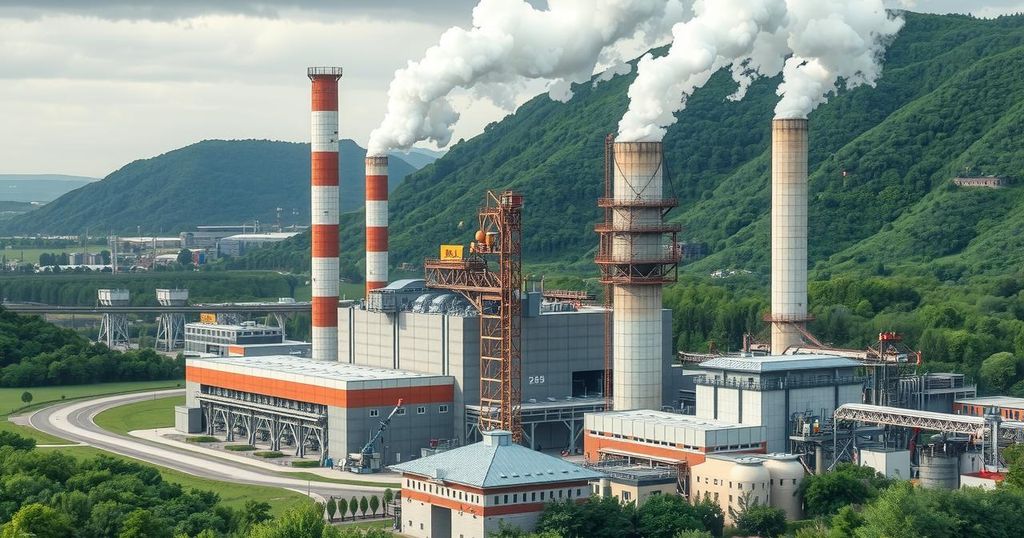Bolivia has opened a steel plant in Puerto Suárez, financed by a Chinese loan to decrease metal import reliance and boost local production. The $546 million project is expected to produce around 200,000 tons of steel annually, significantly impacting the economy and enhancing Bolivia’s resource utilization.
Bolivia has inaugurated a new steel plant in Puerto Suárez, constructed with a significant loan from China. This initiative aims to diminish Bolivia’s dependence on imported metals while enhancing national production capabilities. The Mutun megaproject, which cost $546 million, was primarily financed by the Export-Import Bank of China, reflecting China’s expanding influence in South America.
President Luis Arce stated the primary goal is to utilize the country’s dormant natural resources for the benefit of all Bolivians. The plant is expected to produce approximately 200,000 tons of steel annually, enabling Bolivia to replace about 50 percent of its imports and avoid a currency outflow exceeding $250 million each year, according to Jorge Alvarado, a representative from the operating public company.
Since 2023, Bolivia’s economy has struggled significantly, with much of its international reserves being allocated to subsidized fuel sales. The project is a vital part of China’s “Belt and Road Initiative,” aimed at bolstering global economic ties under President Xi Jinping’s leadership. Moreover, the geopolitical rivalry between the United States and China has intensified in Latin America, prompting regional countries to navigate these pressures carefully.
Estimates suggest that the site contains over 40 billion tons of iron ore, positioning it as one of the largest iron deposits globally. This rich resource base is expected to enhance Bolivia’s industrial capabilities and economic recovery efforts moving forward.
The inauguration of the steel plant in Bolivia represents a strategic move to harness local resources, reduce reliance on imports, and stimulate the nation’s economy amid ongoing challenges. Through increased steel production, the country aims to enhance its industrial output while simultaneously navigating complex geopolitical dynamics in the region. The support from China signifies its growing investment interests in Latin America, particularly amid U.S.-China tensions.
Original Source: www.hurriyetdailynews.com




